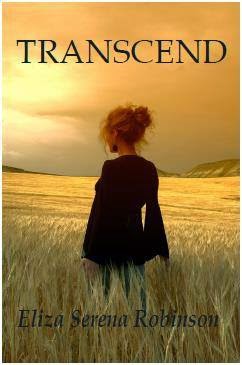So I haven’t written a blog in about two months. That is one
of the many joys of writer’s block. Other than writer’s block, the main reason
I haven’t written any blogs is because I have been busy. (This is a very
shocking fact. Normally I just sit around thinking about books.)
And the reason I’ve been busy? I have started going to
school. For somebody who likes to write about human nature, I haven’t really
had much experience of being around lots of people. Well, until last week.
Naturally, all this exposure to human nature makes me think
about my writing, and about my characters. What I have realized is that humans
are absolutely nothing like fictional characters. I mean, I knew this already,
but not to the same extent. For example: the character of Kai. He just wouldn’t
exist in the real world. As someone who has spent the last week-and-a-half around
fifteen-year-old boys, I can say with 100 per cent certainty that they are
nothing like they are in books. Specifically, nothing like they are in my books.
And that started me thinking about the concept of The Hero.
The Hero is the good guy; examples of his personality traits include “getting
the girl” and “defeating evil”. The Hero isn’t always a guy, sometimes he’s a
girl, but today I’m talking about male versions of The Hero.
Girls who read a lot of books often find themselves
frustrated by the lack of perfect males in the world. Don’t get me wrong, there
are some nice guys in the world. But is nice enough? Nice doesn’t slay dragons
and carry you away to castles in the clouds. Yes, booknerds want their guy to
be sweet and kind, but they also want him to be heroic and brave, to be dark
and mysterious. And in real life, most of those qualities don’t mix.
So where does the idea of The Hero come from? How do you get
from the average real guy to Mr Perfect? How did this archetype come about when
most human beings are so…depressingly average? One of my theories is that it
came about in the age of knights and chivalry, when the act of going off to
kill people over a bit of land became glorified. A guy would go off to fight in
the 100 Years War, and before he left he would be all like “I love you. Promise
to marry me so that if I die I know that you loved me”. And then he went off
and killed a load of French guys in the name of “I have protected you from the
French, my love. I am a hero.”
Yeah, that’s one theory. The other theory is that people
romanticize real life in their heads to make it more interesting. I spend at least
fifty per cent of my time doing this. The fact is: things are more interesting
when you add some imagination. The problem with this is when you start adding
imagination to people. These people are never going to live up to how they are
in your head, and you’ll be sorely disappointed, and they’ll be wondering what
they did wrong.
The people you meet, the people you see every day, they are
almost certainly not going to be The Hero. They’re not going to sweep you off
your feet and risk their lives to defend your honour. But The Hero does exist,
I am sure of that. His good qualities are just more subtle. I believe in The
Hero, I believe that he is out there somewhere. I also believe that any one of
us can be The Hero, if we make the right choices. Sometimes the dragons that
need slaying are only words, and sometimes the people who need defending aren’t
damsels in distress, but just people who need to know they’ve got someone on
their side. And as for castles in the clouds, I’m with Henry David Thoreau on
that one. He said “If you have built
castles in the air, your work need not be lost; that is where they should be.
Now put the foundations under them.”
And now, a round of applause for me because I managed to
write a whole blog without using Phoenix
as an example of something.
